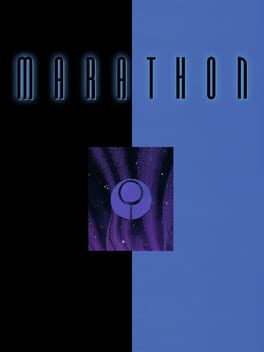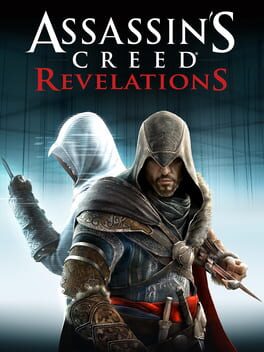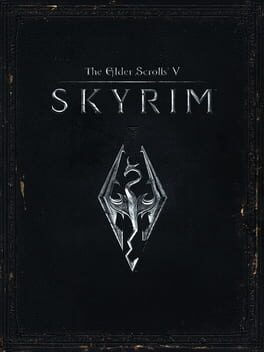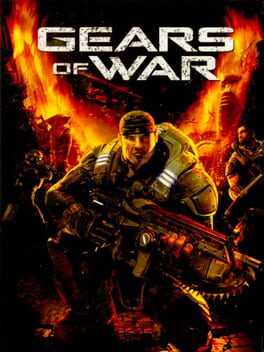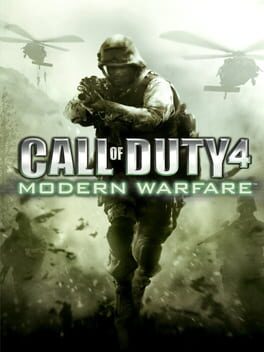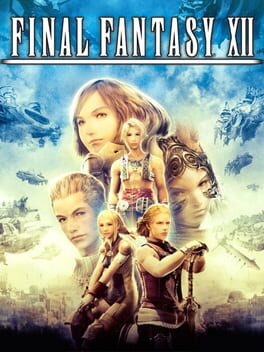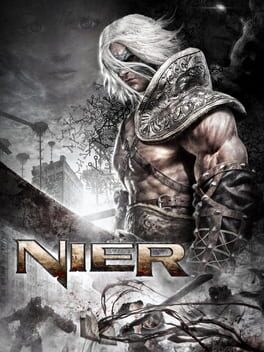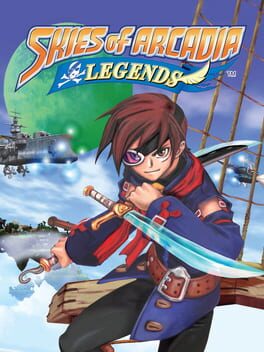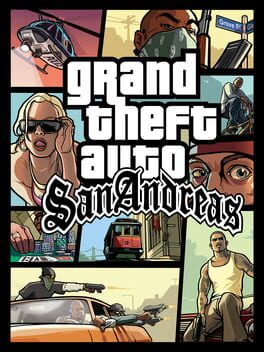Jimmawww
1994
I’m mixed, don’t play it unless you need to, its a poor Doom clone. My biggest complaint is how the levels are laid out - it expects you to wander around and find objectives (destroy/activate/etc) and is very convoluted written so you are never sure what exactly to do. Half the time you intuitively go through the level no problem but the other half you get stuck and end up randomly walking around for at least 10min trying to figure what the games wants. This should happen max once per game but this is far too common where I had to use guides many times. Another mechanic is that it expects you SOMETIMES to go back to the starting/new terminal after doing an objective but you are never indicated that it is ready so you go back and re-read the same text. If every level was structured the same way then no problem, but it mixes it up so you can’t anticipate it and is extremely frustrating and feels like you are going in circles. Plus the game expecting you to know to grenade jump or other convoluted things to actually progress. Also not really digging the platforming. Missing music too. That being said the writing is astounding and gives it a flavour almost as good as halo if not better.
My hype for Revelations was gratuitously exaggerated, mostly because of the very well done trailer. It shows Ezio going on an epic journey arriving to an ancient snow covered temple with Templars waiting to ambush him, returning to the roots of his profession. I saw this as Ubisoft going back to its basic mechanics and making the game similar to the original AC, which stood out to me for its intense atmosphere and mystery. Also seeing the old environments really got me hooked, I just loved walking around the castles and jumping into haystacks in the first game. Showing Ezio arrive in winter with him outnumbered and surrounded by his enemies gave the tone of a much darker experience and hints at the possibility of Ezio dying. But my favorite idea from this trailer was how Ezio was able to see Altair as a ghost-like figure which seemed to be guiding him. Ezio was more or less forced into the brotherhood for the purpose of extracting revenge on those who killed his family, being an assassin gave him the skills that he needed to extract justice in what he saw to be a corrupt world. Unfortunately Ezio has the maturity of a sexually frustrated college frat boy, and comes off as the Forrest Gump of assassins rather than a logical, deductive, and professional one (like Altair). By revisiting the roots of his legacy, Ezio has the opportunity to be guided by his ancestors towards a more mature and noble role. With so many great ideas with a mature tone (in a market that seemed to be based on grinding out conventions so superficial I could find myself having a more prolific experience reading the back of a cereal box), the finality of a story arch, and my general hard-on for arabian architecture, I was confident that this was going to be a game that I could set a new standard for modern games...
BUT BOY WAS I WRONG
-Ezio is more immature than ever [his one liners have the charisma of soggy laundry]
-you spend less than 1% of the game in the actual ruins which you can't explore anyway
-ghost Altair doesn't do a damn thing
-Yusuf is the ANNOYING comic relief
-Suleiman is the best character
-the game mechanics are ridiculously overcomplicated
-you have an unnecessary amount of weapons [your equipped with everything from a pea-shooter to an AK-47]
-Altair's memory "levels" are disgracefully simple (press x: a winar is you!)
-Sofia, the "please kill her at the next chance" character
-Ezio does not die (he kills the bad guy, gets the girl, and takes a figurative dump on everything AC1 related)
To put it bluntly Revelations could not be more removed from the original. It panders to ALL of the stereotypes in a "oh yeah baby, I still got it" action hero story. Sofia is FORCED into the story and becomes the shove-down-your-throat/ supportive-love-interest/ brain-and-brawn/ strong-women-in-a-man's-world character, HERP DERP I AM SOFIA AND AM SOOOOO IMPORTANT. Aside from story issues the game overall was simply over-cluttered with meaningless filler and was disappointingly short. If there's any element of mystery here its as to how AC got so bad so fast.
BUT BOY WAS I WRONG
-Ezio is more immature than ever [his one liners have the charisma of soggy laundry]
-you spend less than 1% of the game in the actual ruins which you can't explore anyway
-ghost Altair doesn't do a damn thing
-Yusuf is the ANNOYING comic relief
-Suleiman is the best character
-the game mechanics are ridiculously overcomplicated
-you have an unnecessary amount of weapons [your equipped with everything from a pea-shooter to an AK-47]
-Altair's memory "levels" are disgracefully simple (press x: a winar is you!)
-Sofia, the "please kill her at the next chance" character
-Ezio does not die (he kills the bad guy, gets the girl, and takes a figurative dump on everything AC1 related)
To put it bluntly Revelations could not be more removed from the original. It panders to ALL of the stereotypes in a "oh yeah baby, I still got it" action hero story. Sofia is FORCED into the story and becomes the shove-down-your-throat/ supportive-love-interest/ brain-and-brawn/ strong-women-in-a-man's-world character, HERP DERP I AM SOFIA AND AM SOOOOO IMPORTANT. Aside from story issues the game overall was simply over-cluttered with meaningless filler and was disappointingly short. If there's any element of mystery here its as to how AC got so bad so fast.
What makes this game so good? Its environments are beautiful, its lore is lush, its pace is malleable, its interface is simple, its fun is fun (lol). This game in short does its best without worrying about trying to bleed the gamer dry. It's a little sad that I haven't had this much enjoyment out of a game for a while, with most of gaming becoming mainstreamed the creativity I usually see is scarce these days. Skyrim is a haven of creativity and is a game that delivers on almost all accounts.
1999
The pure definition of a survival and horror game. Gameplay requires you to strategically manage your inventory and make high risk decisions to navigate the environment. Playing this game in 2015 I’ll say that it has the most intuitive map system I’ve ever seen, ala making red x’s over areas that are inaccessible and updates as the player explores the map. The atmosphere is the pivotal attraction in this game, despite the dated pixilation the environments evoke a tangible sadness and eeriness as well as suggestive and subtle imagery. Initially a technical restraint, the use of mist to hide the lack of draw distance creates a constant fear of the unknown. Atmosphere is also bolstered by the fantastic sound design of Akira Yamaoka, who at this point is synonymous with the SH series. As much as sound is important in horror film, it shows more in games. Indistinct, metallic, and uncanny sound effects populate the environments in tandem with subtle ambience or silence that builds a real sense of uncomfortableness and tension. SH also manages to tell a personal psychological story along with an impressive lore that mythifies small-town America. SH has no jump scares in sight as it’s mantra is subtlety and suggestion.
2006
A sci-fi dystopian 3rd person shooter, Gears of War doesn’t strike you as a mainstream game but with a co-op focused campaign, a warlike environment, and a dynamic group of characters Gears manages to mark its claim. The game is a true ‘cover-based shooter’, however there comes a variety of gameplay in different scenarios where players have to time runs from cover to cover, lead a boss into a vulnerable zone, or enter into a (poorly made) vehicle level. The action overall is fun, if a little unpolished. The story is a convoluted mess that allows the cast to fight, regroup, and blow stuff up. The dialogue of the group are little gems as you have seriousness alongside sarcasm and egotism.
A fun game featuring guns that everyone has played. Despite this being the first modern take for a WW2 game it came out exceptionally well, even moreso than its successors strangely enough. The story is even half-decent, despite being the traditional America Vs Evil Terrorists the story feels real enough while still pulling off a romantic action movie feel to it (with its successors being too much of either one). Online you get kills and level up to unlock better guns and create an arsenal of weapons you can customize and put into a loadout. The quality and polish of the physics of the game along with killstreaks have led to the game’s spirit of competitive enjoyment.
2006
Aside from nice character designs and a fun open world combat system this game is bad. The story is a directionless half-baked star wars rip-off filled with bland characters, especially the main one. It was fun to play but without a good story for motivation it later felt more like a chore to finish.
2010
A game with an emotional story, a cast of complex and hilarious characters, incredibly music, and intensely deep lore; Nier is my favorite game of last gen and something every gamer should play. The bulk of Nier’s gameplay is hack and slash but also has a plethora of diverse minigames including bullet hell and text adventure. While I’d rate the gameplay as decent the real star here are the characters and story. The main character is a straight forward gruff hero and acts as a foil to the other characters in your party whose dialogue wants you craving more. The story unveils different shades of melancholy as it deals with unconventional issues and different stories of tragedy, even sidequests unveil unexpected sorrow. The story also talks about how the world has been messed up and leads into a lore with a doleful outlook on the world, regardless of which the characters persevere against with or without knowledge of it. Nier has the best music arrangement I have heard in a game, ever. If you don’t get to play Nier you should at the very least listen to it.
2011
A unique game and an instant classic, Dark Souls is a game oozing with atmosphere and challenges. What Dark Souls seems to stand out in is environmental storytelling, the environments you inhabit are well designed in terms of connectivity, ambience, and especially lore. The lore is told through implications with casual NPC dialogues and item descriptions which help the player connect the laws and relationships of a rich world. This boon however comes shorthand into the one main issue with Dark Souls which that there is no story. It is mostly a disconjointed series of events reliant on atmosphere but that atmosphere is so excellent it creates an entirely unique experience. An interesting mechanic of DS is death, upon which all of your unspent experience points are left at the area you died and you respawn at a save point which the opportunity to reclaim your points, however dying again nullifies your points entirely. This leads to a gameplay style that is ‘High-Risk, High-Reward’ which is compounded by unpredictable enemy behaviour, booby traps, difficulty spikes, and a clunky combat system. There is a thrill of exploring the unknown and also knowing that you could lose everything if you’re not careful. It is also one of the few games where dying becomes an incentive rather than a deterrent to continue playing, which is a fundamental difference which should not be understated.
1997
A game that spans a huge story with a team of characters FF7 is considered the one of the most iconic JRPGs of all time. Gameplay wise the battle system is intuitive enough, although a bit stressful as even though it is turn-based there is a timer for each attack. The open world can be difficult to navigate if you’re uncertain of your objective but is sufficient. A nice streamlined option is that magic and skills are equipped to a character’s weapon and level up as you use them, so swapping abilities between characters is no problem. There are a lot of events/minigames in FF7 (like the parade and CPR) which help make memorable moments and breakup the gameplay. The plot starts off very strong in the middle of a train heist and pulls you into the action of the first act, unfortunately the momentum isn’t consistent and after you leave the city the plot slows down notably. The story is a mixed bag, the overall theme of restorative nature vs destructive nature is told very well without being environmentalist while some parts of the game take such an extremely bizarre tone shift and some primary plot points are convolutedly explained. Each character in your party has a unique backstory that unravels alongside the main story which takes you across a large map and many hours.
From a gameplay perspective SoA is excellent, if not ground-breaking. Take a normal JRPG, with its lengthily skill trees, clustered menu options, convoluted inventory system, and complicated battle numbers and distill that into a streamlined interface, you get SoA. The battle system is fun, fluid, and presented in such a simple style you want to master all the moves and tactics. Not to mention when you die in a boss battle in this game you go right back to the beginning of the battle (how has FF not figured this out yet?), there is also a very balanced difficulty curve in this game. The world map escalates way more than you’d think and ship battles are fun, the music in this games is also fantastic! Perhaps the only area where SoA feels empty is surprisingly the story and lore. The story (for the most part) is a straightforward ‘defeat the bad guy’ while the lore feels very copy-pasted for environments and overall underdeveloped, it feels like a lot more could have been done here to make the game feel more iconic. The characters are fun and even develop a little. I think the word I’ve used to describe this game would be FUN, and really at the end of the day that’s why this game is considered a classic.
Unlike the other games this one is “open world” which means it has you doing the same missions over and over again. The rewards you get improve your ability to do the missions better but not usually in new and inventive ways. The rewards of the story are few as it seems characters are established and do not develop and there is no movement of story, just kill the bad guy. The base functions and interface is a spider’s web of complication and unnecessary features. Playing the game was fun but not rewarding enough to continue doing the same types of missions over and over.
Its really fascinating how this game is so similar to its predecessor yet feels so different, not just DLC but a full sequel that actually innovates on the originals ideas. Gone are all the main powers replaced withe more versatile ones that allow further game breaking and exploration. Aonuma hands us a toolbox and says more or less figure it out and we have figured out everything from toboggans to gundam mechs. Of course the physics vehicle building is just 1 aspect of Tears, but could be a whole game within itself. The accused simple G-mod beta has smart snapping, weight, and satisfying array of tools - which begs a broader question why no one has tried something on this scale before? In any case I'll get my only gripe out of the way which is, like Breathe before it, the story is fairly skeletal. Ganon is BACK go get sages etc, that said it focuses more on an interesting origin story that doesn't override Skyward. Speaking of I've never seen so much fan service in such a quality game, there are certain armour sets and weapons that shocked me every time. I didn't really love Breath but I did this one because I think of the different areas dictate player choice - the overworld caters to open world quest & find play, the sky is linear puzzle solving, and the depths is combat survival focused. Being able to choose the area of play style goes a long way, also I think it was good to make most shrines reward points rather than more puzzles as it slows the flow. I found myself constantly thinking about a grocery list of to-dos from weapon modding, questing, zonai experimenting, resource gathering, dyeing, and more. It was a constant rush of objectives and points of interesting, interaction, and progress. Perhaps another small gripe is that after chasing every star fragment I still only had half as many as needed by the end of the game for leveling. Its impressive how much the game scales with character abilities, zonai devices, weapons and more that make it feel like conquering a real living world - even if side quests feel a but grindy. When its all said Nintendo has innovated massively in the open world genre and their fruits are on full display here that actually push the medium forward. My game of the year.
2023
